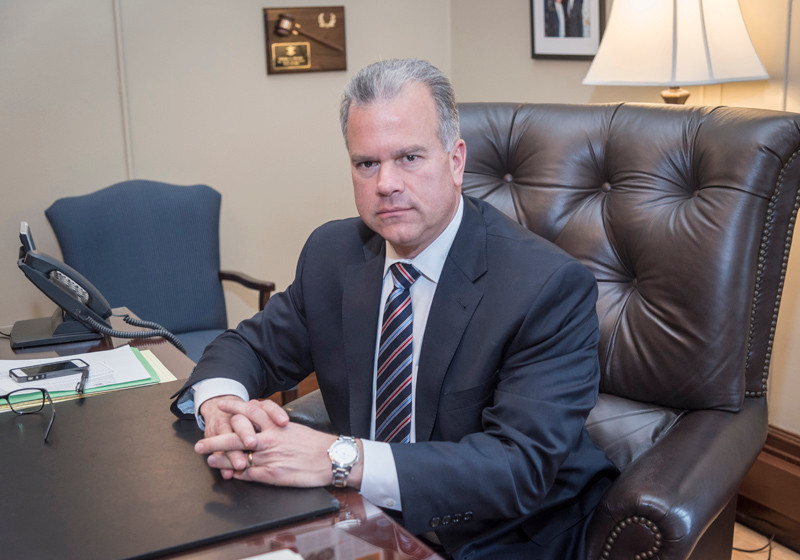
PROVIDENCE – House leadership and state regulators on Tuesday opposed Providence Mayor Jorge O. Elorza-backed legislation to create a regional water-supply board.
The opposition was bipartisan, as House Speaker Nicholas A. Mattiello, a Democrat, and House Minority Leader, Patricia L. Morgan, a Republican, both released statements opposing the bill.
“This legislation is not in the best interests of ratepayers,” Mattiello said in a statement. “It does not have my support.”
Morgan likewise denounced the legislation, saying it would drive up the price of water for Rhode Islanders across the state only to benefit Providence taxpayers.
“This is a very bad bill for many reasons,” she said. “This is nothing short of another money grab from the hardworking taxpayer.”
The legislation, introduced in both Houses of the General Assembly by Rep. Scott A. Slater, D-Providence, and Sen. Maryellen Goodwin, D-Providence, would create an 11-member R.I. Cooperative Water Authority board. The newly created entity would subsequently be allowed to purchase or lease water-supply assets from any of the 490 local water authorities in the state.
Providence, however, would likely benefit the most, as the capital city controls most of the state’s potable water and serves about 60 percent of Rhode Islanders. The net assets of the Providence Water Supply Board are estimated to total at least $372 million.
The proposed legislation would also allow participating suppliers to earmark proceeds for local pension and retirement systems, which are greatly underfunded in Providence. Unfunded liabilities for the city’s pension and other post-employment benefit systems combined total at least $2 billion.
“Tax-wise, Rhode Islanders already have a noose around their necks and taxpayers do not need to pay a hidden water tax to bail out the city of Providence,” Morgan added.
Prior to a hearing on the bill in the House Corporations Committee on Tuesday, the R.I. Public Utilities Commission penned a letter to the committee chairman. The state regulators say they support the concept of a regional water authority, but there are a lot of issues with the proposed plan.
The leading concerns were that the bill would take regulatory power away from the PUC and it would largely benefit Providence taxpayers at the expense of statewide ratepayers, according to the letter.
“While the effect of the bill may be to allow Providence taxpayers to avoid some tax increases related to the underfunded pension system, those increased expenses would fall on water ratepayers, most of whom are outside of the city of Providence,” wrote Cynthia G. Wilson-Frias, PUC deputy chief of legal services.
The political and regulatory opposition clouds the path forward for the legislation. But Elorza nevertheless is looking to push forward, saying through a spokeswoman that “anticipating a monetary impact on ratepayers is premature at this point.
“The mayor met with Speaker Mattiello and while he flagged that he personally had concerns, he encouraged us to gain the support of membership,” said Emily Crowell, Elorza’s communication director. “What we do know is that this legislation would ensure the 60 percent of Rhode Islanders who rely on Providence Water for their water source, reliable and safe drinking water for years to come.”
Eli Sherman is a PBN staff writer.










